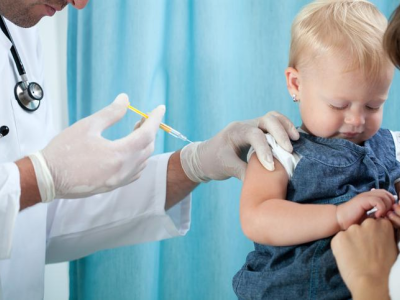A desperately needed new antibiotic for gonorrhea infections could soon be on the way.
In a phase 3 trial conducted in five countries, the investigational oral antibiotic zoliflodacin met its primary end point, demonstrating statistical non-inferiority in curing patients who had uncomplicated urogenital gonorrhea infections compared with the standard treatment of intramuscular ceftriaxone and oral azithromycin. Zoliflodacin was also found to be well tolerated by patients, with no serious adverse events or deaths recorded.
A first-in-class antibiotic with a novel mechanism of action, zoliflodacin is the first new drug in decades for gonorrhea, which is becoming increasingly resistant to the current antibiotic regimen. And because it's delivered orally, it would be easier to administer than the intrasmuscular injections that have been part of standard treatment.
"The outcome of this study is a potential game changer for sexual health," Edward Hook, MD, protocol chair for the trial and Emeritus Professor of Medicine at the University of Alabama-Birmingham, said in a press release from trial co-sponsors Innoviva Specialty Therapeutics and the non-profit Global Antibiotic Research and Development Partnership (GARDP).
Concerns about untreatable gonorrhea
In the trial, which was conducted at 16 sites in the United States, Belgium, the Netherlands, South Africa, and Thailand, investigators randomized 930 patients with uncomplicated gonorrhea infections to receive either a 3-gram dose of oral zoliflodacin or 500 milligrams of intramuscular ceftriaxone plus 1 gram of oral azithromycin. Zoliflodacin met the pre-specified 12% non-inferiority margin compared with the standard regimen (5.31%; 95% confidence interval, 1.38% to 8.65%) for microbiologic cure at the urogenital site.
The press release did not provide any further statistical detail on the preliminary findings.
An estimated 82 million new gonorrhea infections occur every year globally, making it the third most common sexually transmitted infection. More important, the Neisseria gonorrhoeae bacterium has developed resistance to several different classes of antibiotic, making it increasingly difficult to treat. The current regimen is the last remaining recommended treatment globally but is increasingly threatened by ceftriaxone-resistant gonorrhea strains, which have been reported in several countries.
"Gonorrhea is the perfect example of a sexually transmitted infection that will develop resistance to whatever you use on it," Hook recently told CIDRAP News. "The first antibiotics ever used [for gonorrhea] were sulfa drugs in the 1930s. And now, 90 years later, every antibiotic that's ever been used to treat gonorrhea, this organism has developed resistance to."
Rising resistance to ceftriaxone has raised concerns about untreatable gonorrhea infections, which can result in infertility in women, ectopic pregnancies, and pelvic inflammatory disease. As a result, the World Health Organization has labeled gonorrhea a priority pathogen for antibiotic research and development (R&D).
A new antibiotic development model
Zoliflodacin could also be a game-changer for antibiotic R&D efforts. Entasis Therapeutics Limited (now a subsidiary of Innoviva) discovered and developed the drug, then in 2017 signed an agreement with GARDP to carry out the phase 3 trial. Under the agreement, GARDP received the rights to register and commercialize zoliflodacin, upon regulatory approval, in all low- and middle-income countries and most middle-income countries.
Innoviva will retain commercial rights in major markets North America, Europe, Latin America, and the Asia-Pacific region.
The outcome of this study is a potential game changer for sexual health.
GARDP officials say the partnership represents a new model for antibiotic R&D—one that places the emphasis on public health need rather than profit. One of GARDP's goals is to make new antibiotics for antibiotic-resistant infections available in countries that have traditionally had limited or no access to those drugs and are seeing rising rates of antimicrobial resistance (AMR).
"This is a significant step forward in the treatment of gonorrhoea, and also shows that GARDP's public-private partnership model can play a crucial role in helping to fix the public health failure at the heart of the global AMR crisis," GARDP Executive Director Manica Balasegaram, MBBS, MRCP, MSc, said in the press release. "This zoliflodacin programme demonstrates that it is possible to develop antibiotic treatments targeting multidrug-resistant bacteria that pose the greatest public health threat, and which may not otherwise get developed."























